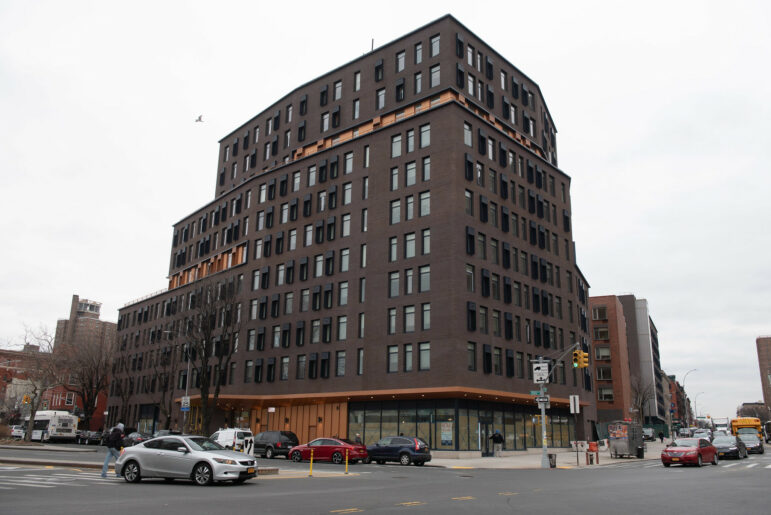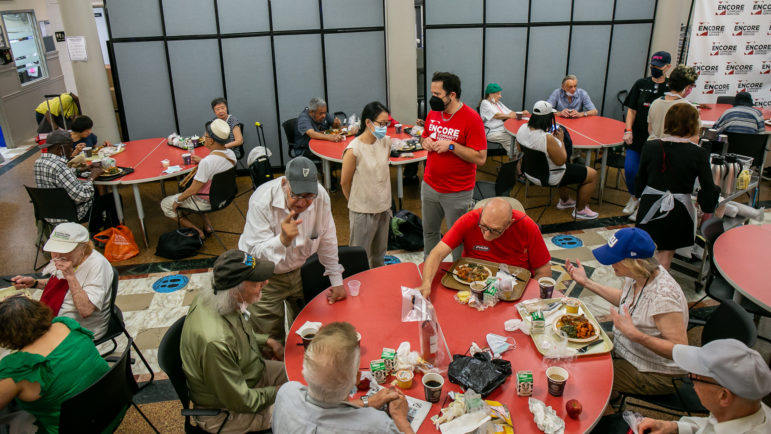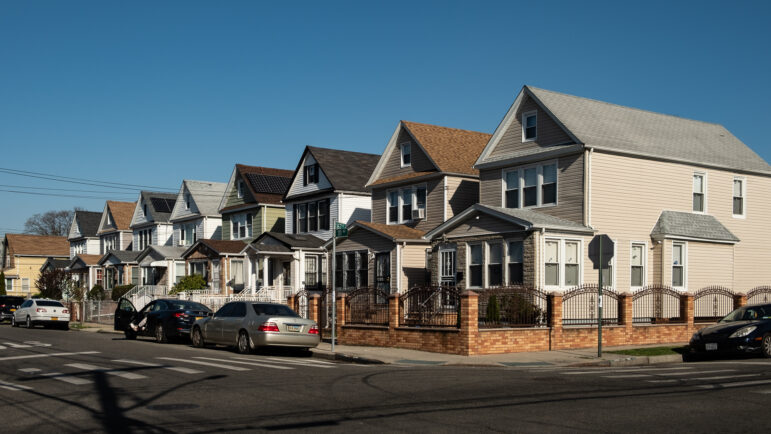“We must build upon the newfound flexibility provided by City of Yes by making direct, meaningful investments in supportive housing.”

Gerardo Romo / NYC Council Media Unit.
Buildings in Inwood, Manhattan.New York has been in the throes of a housing crisis for over a decade, but the situation feels more urgent now than ever. Rents skyrocketed following the pandemic and never came back down, while vacancy rates have reached historic lows across the five boroughs. A lack of housing development has created an untenable situation for millions of residents.
That housing crunch has fallen hardest on the most vulnerable New Yorkers—our neighbors living with mental health conditions or substance use challenges, for example, or families with multiple children and limited income. For many of these individuals and families, a stable, affordable home is the foundation they need to grow and thrive. Without one, their personal and financial struggles will only compound.
While any new housing can help ease our current crisis, not all development is created equal. What New York needs most is supportive and deeply affordable housing for low-income families. Supportive housing, in particular, goes beyond simply, providing a roof over someone’s head. It is developed alongside critical on-site services that help residents rebuild their lives through behavioral healthcare, employment counseling, community food security initiatives, and essential social support.
As the president and CEO of Services for the UnderServed (S:US), I’ve witnessed firsthand the transformative power of this approach. Our organization is among the largest developers and operators of supportive housing in New York City. Between 2022 and 2025, S:US will have opened more than 1,200 deeply affordable apartments across the city, available to low-income families, individuals living in shelter, and marginalized households with special needs. In total, we own and operate more than 80 residential buildings across New York. We know what it takes to build housing—City of Yes will help, but additional resources and political will are needed as well. Because this is a crisis that affects all of us, and one we can solve.
The City Council recently took a crucial step forward with the passage of City of Yes, a groundbreaking proposal that updates our city’s outdated zoning regulations. These current regulations have strictly limited the development of much-needed new homes, including affordable and supportive housing. Obsolete policies—such as strict limitations on mixed-use building construction along commercial corridors and unnecessary parking requirements—have largely gone away, expanding our ability to respond to today’s housing demand.
Even before City of Yes, our team at Services for the UnderServed was creating hundreds of new supportive and deeply affordable units every year. Now, we’ll have the flexibility to do even more of that work in neighborhoods where it is needed most.
And yet, we must be clear-eyed: zoning changes alone cannot solve our housing crisis. Supportive housing is an effective but expensive intervention, requiring significant investment in both initial development and ongoing programming. City agencies must continue to fund both aspects, making expanded supportive housing not just a vision, but a viable reality. Voucher programs and other forms of financial assistance must also be administered fairly and efficiently.
The challenges we face demand a unified, comprehensive approach. Isolated efforts will not suffice. We need a coordinated strategy that addresses the diverse needs of our most vulnerable residents, particularly those experiencing chronic homelessness or related challenges.
The City Council has created a foundation that gives us new tools to tackle our housing shortage. Now, we must build upon the newfound flexibility provided by City of Yes by making direct, meaningful investments in supportive housing. We must bring the most vulnerable New Yorkers in from the cold, providing them not just with a place to live, but with the support they need to thrive.
Our fellow New Yorkers are counting on us to make a difference, and the time to act is now. Supportive and deeply affordable housing for low-income families is more than just a solution to our housing crisis—it’s a pathway to dignity, stability, and hope for thousands of our city’s most at-risk residents.
Perry Perlmutter is president & CEO of Services for the UnderServed.








